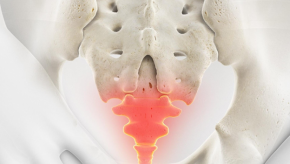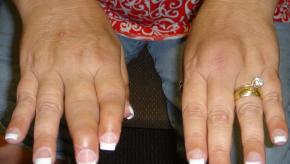News
Long-Term APP Retention: Building Success for Practices and Providers
Advanced Practice Providers (APPs) play an increasingly vital role in rheumatology practices across the country. With rising patient volumes and a growing demand for timely, high-quality care, incorporating an APP into a rheumatology team can be transformative.
Turkey Tryptophan (11.28.2025)
Dr. Jack Cush reviews the news and reports from this past week on RheumNow.com, including reports on FDA resurrections, FM seasonal worsening, and do you fight switch or swap biologics in PsA TNFi nonresponders?
Coccyx and Sacrococcygeal Joint Disorders
Pain from coccygeal or sacrococcygeal disorders is rare, often presenting as a diagnostic challenge. Coccygeal pain is often mistaken for lumbosacral, pelvic, or gastrointestinal disorders.
Treating Refractory Still's Disease
A full read systematic review article examined treatment options for difficult to manage systemic juvenile idiopathic arthritis, or Still’s disease.
Chronic pain may dramatically raise your blood pressure
Managing Perioperative DMARDs with Arthroplasty
Postoperative complications with arthroplasty may be related to chronic inflammation and immunosuppressive therapy. Yet a recent retrospective study total ankle arthroplasty in end-stage RA patients shows that early postoperative wound complications are unaffected by the continued use of their preoperative medications including DMARDs.Partial vs Total Knee Replacement: Is One Superior?
Vitamin D and Lupus Outcomes (11.21.2025)
Dr. Jack Cush reviews the news and journal reports from this past week on RheumNow.com.
Organ Involvement with Behçet’s
A review of patient data from the International AutoInflammatory Disease Alliance (AIDA) Network registry identifying those with mucocutaneous Behçet’s disease (BD) may progres to major organ involvement (MOI)m especially at later stages.A New Disease Activity Score for Antiphospholipid Syndrome?
APS is a systemic autoimmune disorder. It is characterised by the presence of antiphospholipid antibodies and a broad spectrum of clinical features, causing obstetric as well as thrombotic, microvascular and non-thrombotic (TMN) symptoms.














